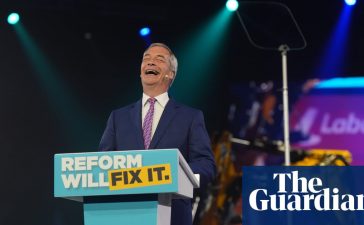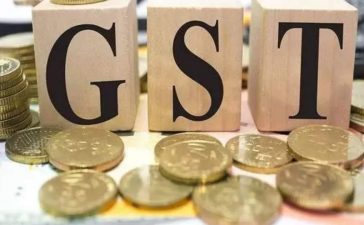Starling Bank fined £29m for sanctions breaches
The UK financial regulator has fined app-based Starling Bank £29m for “shockingly lax” failures related to financial sanctions screening.
The Financial Conduct Authority (FCA) said that Starling had reported “multiple potential breaches of financial sanctions” despite its financial checks process being under scrutiny by the regulator.
The fine was reduced by 30% from £41m because it agreed to resolve the issues.
Starling has grown rapidly as it aims to take on the big high-street lenders with an app-only offering. It is one of several app-only competitors that have started up in the last decade, including rivals such as Monzo and Revolut.
However, the rush to grow has caused concerns. Starling Bank was criticised in 2022 by a former government minister who claimed it did not run adequate checks on borrowers before handing out taxpayer-backed Covid-19 loans. Starling Bank’s founder, Anne Boden, at the time said she was “shocked” by Agnew’s comments, asked the former minister to withdraw his statements, and said the bank was one of the “most active and effective banks fighting fraud”.
Yet as far back as 2021 the FCA had “identified serious concerns with the anti-money laundering and sanctions framework” at the bank.
Starling agreed to regulatory restrictions preventing it from opening new accounts for high-risk customers until it improved, but the FCA said that it failed to comply and opened over 54,000 accounts for 49,000 high-risk customers between September 2021 and November 2023.
Therese Chambers, the FCA’s joint executive director of enforcement and market oversight, said:
Starling’s financial sanction screening controls were shockingly lax. It left the financial system wide open to criminals and those subject to sanctions. It compounded this by failing to properly comply with FCA requirements it had agreed to, which were put in place to lower the risk of Starling facilitating financial crime.
Key events
Closing summary: Starling fined £29m; oil prices in spotlight amid Middle East crisis
Starling Bank has been fined £29m by the City watchdog for “shockingly lax” financial crime controls which “left the financial system wide open to criminals and those subject to sanctions”.
The Financial Conduct Authority (FCA) said the challenger bank had grown quickly but “measures to tackle financial crime did not keep pace with its growth”.
Starling, a UK-based online bank founded in 2014 by entrepreneur Anne Boden, grew rapidly, from 43,000 customers in 2017 to 3.6 million in 2023.
Banks are required by law to conduct rigorous checks on new customers to prevent fraud and money laundering.
Starling said it “regrets and apologises” for its failings, and has paid the fine as full and final settlement. It added that it had rescreened transactions and reviewed its customer accounts in depth, and introduced additional safeguards.
In other business news today:
-
Oil prices rose for the second day in a row after Iran’s missile attack on Israel threatened to escalate the Middle East crisis.
-
A long-serving former Harrods executive has stepped back from plans to become boss of department store Fenwick chain this month amid controversy about the activities of the late owner of the Knightsbridge department store, Mohamed Al Fayed.
-
Rail passengers using London’s Euston station are being put in danger from high levels of overcrowding, a transport watchdog has warned.
-
JD Sports’ UK business has been hit by falling sales after disruption in the Red Sea stalled deliveries and the cold, wet spring reduced demand for camping kit and clothing.
-
Tesla missed car delivery expectations, giving it a harder task to beat last year’s numbers.
-
The Saudi energy minister warned other members of the Opec+ oil cartel that they should comply with production cuts to avoid prices dropping as low as $50 per barrel.
You can continue to follow our live coverage from around the world:
In our coverage of the Middle East crisis, Israel and Hezbollah fighters clash on the ground in Lebanon after Israel sends in more troops
In the US, reaction to the Vance-Walz debate
In the UK, Tory leadership rivals make pitch to members at party conference
Thank you for reading today, and please do join us tomorrow bright and early for more of the same. JJ
Wall Street stock market indices have dipped at the opening bell in New York, as investors try to work out what will happen next in the Middle East crisis.
Here are the opening snaps via Reuters:
-
S&P 500 DOWN 13.44 POINTS, OR 0.24%, AT 5,695.31
-
NASDAQ DOWN 45.08 POINTS, OR 0.25%, AT 17,865.28
-
DOW JONES DOWN 23.96 POINTS, OR 0.06%, AT 42,133.01
Tesla has marginally missed expectations for the number of deliveries of electric cars in the third quarter of the year, as carmakers contend with slowing demand around the world.
The US electric carmaker delivered 463,000 vehicles in the July-to-September quarter, compared with the 469,000 average expected by analysts polled by London Stock Exchange Group.
Tesla shares fell by 4% in pre-market trading.
Wall Street on average had expected the Elon Musk-led company to deliver 469,828 vehicles, according to 12 analysts polled by LSEG.
The figures mean that Tesla will have to manage 516,000 deliveries in the fourth quarter to match last year’s total of 1.81m, Reuters reported.
The EU’s proposed tariffs on Chinese EV imports are likely to pass on Friday, according to Reuters, citing sources who suggest the measure will have enough support to pass a vote on Friday.
Reuters reported:
France, Greece, Italy and Poland will vote on Friday in support of imposing tariffs of up to 45% on imports of electric vehicles (EVs) made in China, enough to get the European Union proposal passed, in a move likely to increase trade tensions with Beijing, sources said.
The tariffs are aimed at countering the alleged state support handed to China’s car manufacturing industry, which has allowed exported vehicles to be sold at cheaper prices than those of global rivals, according to the EU.
Stronger-than-expected US jobs numbers would usually suggest that the world’s largest economy is doing better than expected.
Reuters reported that US stock market futures narrowed some of the day’s losses ahead of proper trading opening in an hour’s time.
The US dollar index also gained ground slightly; a stronger economy could make the Federal Reserve slow the pace of interest rate cuts, which would make dollar-yielding assets marginally more attractive.
Naeem Aslam, chief investment officer at Zaye Capital Markets, a trading research company, said:
The US ADP data rolled in like a breath of fresh air for the Fed, printing a much stronger reading than anticipated. This news has certainly put a damper on hopes for a ballistic shift in monetary policy. As a result, gold prices have taken a hit, with the dollar index flexing its muscles. All eyes are now on Friday’s developments.
Friday will bring the big one: the aforementioned non-farm payrolls data.
US job creation accelerated more than expected in September
US hiring accelerated by more than expected in September, with 143,000 jobs created in the private sector according to employment agency ADP.
There was a “widespread rebound after a five-month slowdown” in US job creation, ADP said.
The rapid job creation compared with 99,000 new jobs in August, according to ADP’s data. Economists polled by Reuters had expected ADP to report 120,000 new jobs created in September.
The ADP numbers are a precursor to the closely followed non-farm payrolls data, which show the pace of job creation in the US economy. The non-farms are vital to the Federal Reserve’s monetary policy judgements, as the central bank considers when to cut interest rates.
Bank of England working on digital assets tech to avoid shift away from central bank money
The Bank of England is working on technology to settle blockchain payments using central bank money in order to prevent a shift to private settlement that could undermine financial stablity, according to a senior official.
Sasha Mills, executive director of financial market infrastructure for the Bank, said in a speech on Monday that the Bank was acting to link up the traditional financial sector to digital technologies so that payments continue to be made using central bank money rather than through digital assets such as stablecoins.
Stablecoins are a form of cryptocurrency designed to hold value and make payments quicker and cheaper by avoiding the need for a trusted middleman. They can be used to settle transactions, although in practice adoption has been relatively slow because of technical hurdles and waning interest in cryptocurrency from companies and investors. Their reputation has also suffered after notable collapses that have sparked crypto market turmoil.
Nevertheless, Mills said there was a risk that payments could shift “away from central bank money to private settlement assets, weakening financial stability”. She was speaking at Digital Assets Week, a London conference.
The Bank this week opened a “digital securities sandbox” alongside the Financial Conduct Authority, which regulates financial services firms, to allow companies to test out trading using blockchain technologies. Mills said the regulators had allowed non-sterling assets to be used in the trial after feedback from companies.
Mills said there were risks, but also that digital assets could make payments “faster, cheaper, and more straightforward”. She said:
While unbacked crypto grabs the headlines, to me developments in the underlying technologies, including blockchains and programmable ledgers, may be what will have the lasting positive impact on supporting financial markets and growth.
We have a low-risk appetite for a significant shift away from wholesale settlement in central bank money towards private settlement assets (such as from the use of stablecoins for wholesale transactions), because settlement in central bank money is the anchor back to the state.
At lunchtime in western Europe major stock market indeices are mostly in the red, with only the FTSE 100 up by 0.15%.
However, one industry that is doing well today is weaponry. Escalating conflict in the Middle East is bad for the world, but likely good for weapons sales.
Britain’s BAE Systems was up 2%, Germany’s Rheinmetall was up 2.5%, Italy’s Leonardo gained 4.1%, France’s Thales rose 2.2% and Norway’s Kongsberg rose 3.8%.
Howeverk, some other companies whose defence arms are outweighed by larger aerospace operations were trading flat or down on Wednesday, including Airbus, Dassault, Safran and Qinetiq.

Mark Sweney
Post office operators affected by the Horizon IT scandal will not all receive payouts by the March 2025 deadline called for by the campaigner Sir Alan Bates, the postal minister has admitted.
Gareth Thomas said it would be difficult to achieve the deadline but promised that there would be “substantial progress” toward clearing the compensation claim backlog by next summer.
Last month, Bates sent a letter to hundreds of former branch owner-operators calling for a March 2025 deadline for financial redress for those affected by the Horizon scandal, in which hundreds of post office operators were wrongly pursued through the courts over account shortfalls that were later linked to a faulty IT system.
“I wish I could commit to Sir Alan’s timeframe,” said Thomas, speaking to BBC Breakfast on Wednesday. “I think we will have made substantial progress by next summer.”
Starling said in a statement that it accepts the FCA’s findings in full, and apologised.
David Sproul, chairman of Starling Bank, said:
I would like to apologise for the failings outlined by the FCA and to provide reassurance that we have invested heavily to put things right, including strengthening our board governance and capabilities. We want to assure our customers and employees that these are historic issues. We have learned the lessons of this investigation and are confident that these changes and the strength of our franchise put us in a strong position to continue executing our strategy of safe, sustainable growth, supported by a robust risk management and control framework.
Starling opened a bank account for a person under sanctions. A review found that “at least one designated person had opened an account with them”.
A report detailing the failings was presented to the board in April 2023, a month before Anne Boden stepped down as chief executive.
More details of the oversights from Starling:
-
It said that it screened customers against US, EU and UK sanctions lists, but “only screened its customers against the sanctions records for individuals who were known to reside or have links to the UK”, and failed to check against US sanctions lists at all.
-
A misconfigured system meant that its automatic screening was only checking the names of 39 out of 3,088 people on the UK sanctions list.
-
When the fault was corrected, it created 48,000 alerts for account creation that had not previously been flagged. 796,000 payments were red flagged.
The FCA was damning on Starling Bank’s leadership under founder Anne Boden, who left the business in May 2023.
“Starling’s senior management as a whole lacked the experience and capability” to introduce controls, the FCA said. “They lacked the required AML [anti-money laundering] skills or experience.”
Starling’s senior management failed to adequately oversee and monitor the day-to-day compliance […] There were also key failings in the communications between senior management and the staff responsible for the day- to-day implementation.
The bank only managed its first month without a high-risk client joining in April 2024.
Starling has promised to spend significantly more on financial crime compliance, and has also promised to carry out “historic financial sanctions screening reviews of its entire customer base and payments dating back to 2017”.
That will likely imply a cost of millions of pounds above the £29m fine.
The problem is not limited to Starling. The FCA said:
The Authority found that the challenger bank sub-sector as a whole needed to do more in relation to their financial crime controls.
Starling’s financial crime controls “failed to keep pace with its growth”, the Financial Conduct Authority said in an official notice detailing its reasons for a £29m fine.
The bank put in place a financial sanctions screening framework in 2017. However, its automated screening system had only been screening the names of new and existing customers against “a fraction” of the names on the UK’s consolidated list – resulting in many oversights.
The FCA did not say which individuals under sanctions that Starling dealt with, but the regulator noted that it had written to Starling and other banks in February 2022 – as Russia launched its full-scale invasion of Ukraine – to remind them of their duties to comply with updated sanctions rules relating to Russia.
Starling failed to ensure that its screening of customers and payments was sufficient to prevent this during the relevant period.
Other control failures included:
-
Allowing 294 customers to open accounts after they had been dropped for reasons relating to financial crime.
-
It then found that thousands of customers had opened accounts despite not meeting restrictions.








